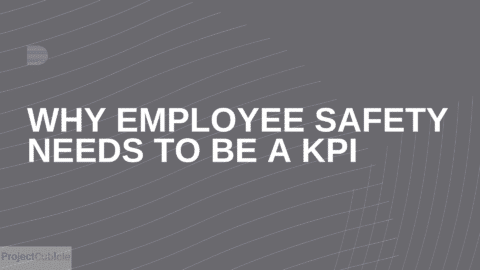Strategies to Win Over Old Employees as a New Boss
Leadership is all about relationships. You need to be able to gain the trust of the people working for you. But at the same time, when you are coming into a business that has an already existing staff, getting them to have faith in your authority can be tricky. They’ve been doing just fine up until this point. What do they need you for? The sooner you can unravel that initial tension, the better the ultimate collaboration will be. Fortunately, there are ways you can establish a good working dynamic right from the get-go to win employees. Read on to learn more!
Table of Contents
To win employees and create a positive work environment, here are a few strategies you can try:
- Communication is key. Keep an open line of communication with your employees. Be transparent about company objectives, listen to their feedback and ideas, and provide regular updates on their performance.
- Recognition and appreciation. Acknowledge and appreciate your employees’ hard work and achievements. Celebrate their successes publicly, provide constructive feedback, and reward exceptional performance with incentives or recognition programs.
- Empowerment and autonomy. Trust your employees to make decisions and give them the autonomy to carry out their work. Encourage creativity and innovation, and provide opportunities for growth and development.
- Work-life balance. Encourage a healthy work-life balance and support your employees’ well-being to win over employees. Offer flexible work arrangements, promote self-care practices, and foster a positive and supportive atmosphere.
Get to Know Them to Win Employees
One of the biggest and most widespread workplace complaints is that employees feel their bosses don’t know anything about them. Think about the traditional workplace dynamic. Staff comes in, they do their jobs. When everything goes well, they never hear from management at all.
What’s the reason the boss woman walks over? Because she has a complaint that needs to be addressed. But when you only talk to be about negative things, it naturally establishes an unhealthy relationship dynamic.
Try to have authentic personal conversations with your staff right from the get-go. You can talk about anything, of course, but keep in mind that people are usually happier to talk about their personal lives than they are about work.
Simply acknowledging your staff’s humanity will make you more popular than a healthy portion of American employers. It’s a low bar to hit, but it’s impactful just the same.
Accept Their Input
The insult of a new boss— particularly in the case of an outside hire— is that the relationship dynamic presumes that someone just walking in the door has more authority than someone who has been grinding away for years.
You can massage out some of that tension by enacting an open-door policy to win employees. Regularly seek input from team members. Find out what they think the most pressing workplace concerns are.
Not only will this help you reinforce your relationship, but it will also most likely serve as a highly productive way to begin your new job. After all, there is wisdom in experience. Why wouldn’t you take advantage of that?
Lean Into the Existing Office Culture
Company cultures are delicate and often very deliberate things. A business may spend years cultivating an intangible but vital dynamic that describes the way it feels to work within said company. But, it’s all too easy to accidentally impart your influence on that culture.
Don’t against the grain. Figure out what the office vibe is, and find a way to contribute without hijacking the company culture.
You can still exert your expectations, and plan celebrations, events, etc. You just have to do it in a way that is cohesive with the existing dynamic. Remember, company culture doesn’t have to be cushy. You can still command a fast-paced work environment.

Celebrate Accomplishments to Win Your Employees
We talked earlier about how people mostly only talk to their boss when a reprimand is in order. The feedback cycle should go both ways. When someone does something good, call it out. You don’t need to bust out the party hats, or even lay the praise on too thick. In fact, getting too gung-ho will probably just come across as disingenuous. Instead, find a legitimate compliment, and pass it along.
Sensitivity Matters
Michael Scott was great in The Office, but he would be a nightmare to work for in real life. When people come to work, they expect to spend their day in a safe, respectful space. Sensitivity awareness can go a long way towards making sure everyone feels comfortable.
There are many resources available that can help you understand what sort of language can be alienating. Despite your best efforts, you might still make the occasional mistake. When you do, be gracious. Apologize, and try to do better.
It’s not about walking on eggshells or being politically correct. It’s simply a matter of making sure everyone in the office feels respected and comfortable.
Request and Implement Feedback
Finally, make sure that you are always working toward improvement. Take stock of how your efforts are going, and actively seek input from your employees. Once again, this will reinforce that you care what they think.
It will also give you a hearty supply of good feedback that you can use to improve your performance. You don’t have to implement everything your staff says. You should, however, at least take it into consideration.
Conclusion on How to Win Employees As a New Boss
The “bad boss,” cliché doesn’t have to play out in real life. It’s true that the American workforce, on average, has a tumultuous relationship with leadership. However, that disconnect goes both ways. A recent survey revealed that most American workers trust strangers more than they do their bosses.
That same survey revealed that most people working in management long for a closer relationship with the people working for them.
The gulf between manager and employee is historic and difficult to navigate. However, that doesn’t mean it is unbridgeable. Even outwardly expressing the desire to have a good relationship with your staff can go a long way toward improving the dynamic in your office as you take on a new leadership position.

Vice President, İntelligent Design & Consultancy Ltd
Over 12 years of global & rich experience in Portfolio & Program Delivery Management in leading & managing IT Governance, PMO, IT Portfolio/Program, IT Products, IT service delivery management, Budget Management, and more.










